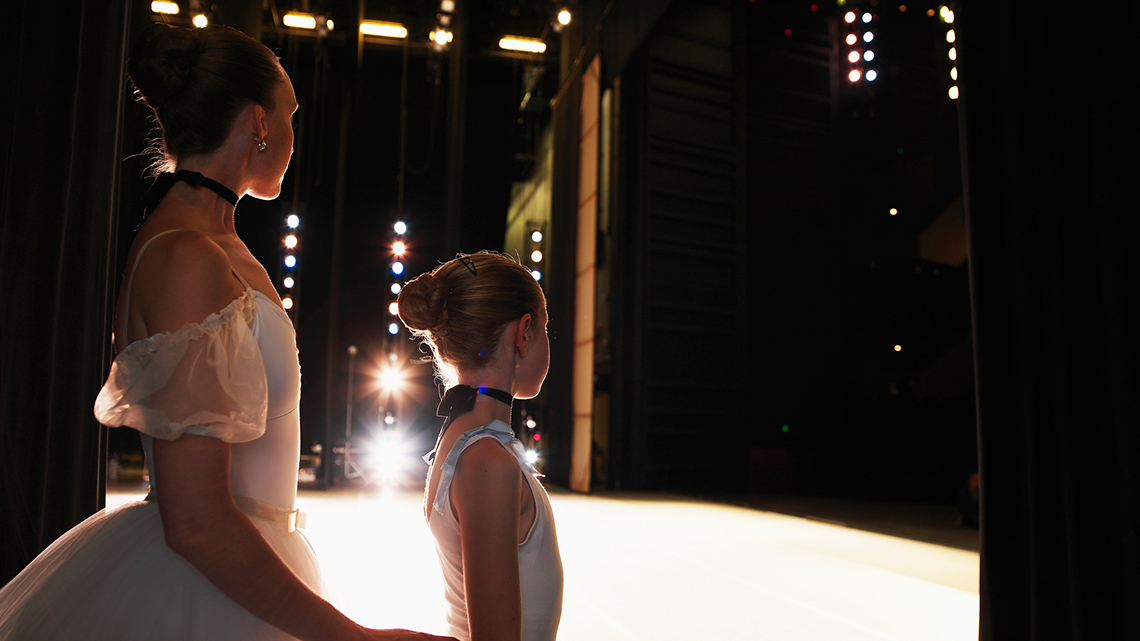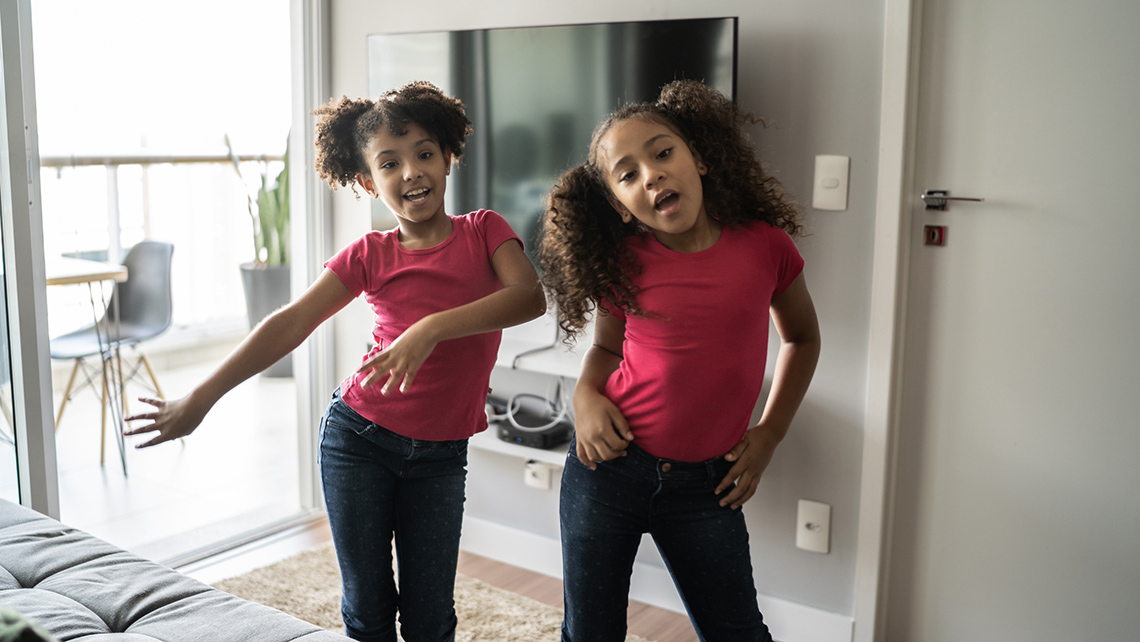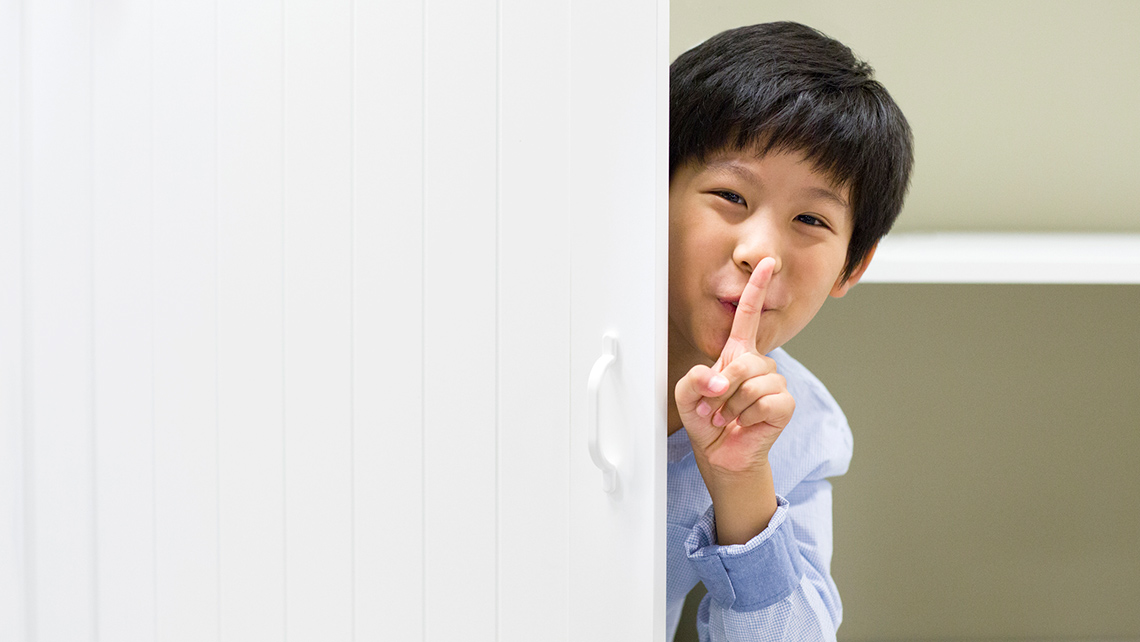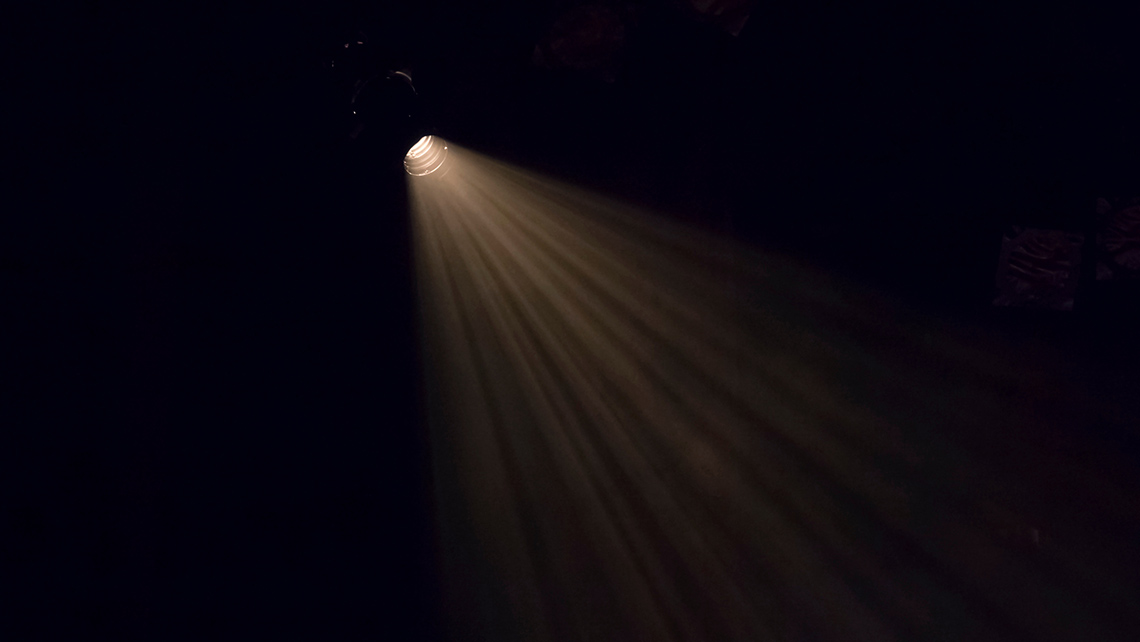Minds On
Today’s vocabulary
Press the following tabs to access today’s vocabulary.
Let’s get started!
When we start a sentence, we use a capital letter. When we end a sentence, we use a period. Capital letters and punctuation help us find the beginning and end of a sentence. Dance phrases also have beginnings and endings.
What are some ways dancers begin and end their dance phrases?
Let’s explore some strategies!
Think about the following questions.
Have you used any of these strategies before? Is there any other that you would add?
Action
Get ready, get set…
Task 1: Creating a short dance phrase
Choose one of the options to complete.
Option 1:
Use a dance piece you have created in a previous learning experience.
Write or draw your dance piece following graphic organizer.
Portfolio
Portfolio
Complete the My Dance Piece in your notebook or using the following fillable and printable document. If you would like, you can use speech-to-text or audio recording tools to record your thoughts. Consider adding your work to your dance portfolio.
|
Beginning |
Write or draw your dance piece here |
Ending |
|
Option 1:
Option 2:
|
|
Option 1:
Option 2:
|
|
Strategies to create Beginnings and Endings |
||
|
Enter or exit from “off stage”
|
||
Press the ‘Activity’ button to access My Dance Piece activity.
Option 2:
Create a new dance phrase.
Create a short dance phrase that uses both locomotor and non-locomotor movements.
Write or draw your dance piece in the following graphic organizer.

Locomotor movement ideas include:
- walk
- skip
- crawl
- gallop
- run
- tiptoe
- roll
- crab walk
Non-locomotor movement ideas include:
- jump on two feet
- jump on one foot
- stretch
- wave
- melt
- wiggle
- shake
- fall to the ground

Portfolio
Portfolio
Complete the My Dance Piece – Option 2 activity in your notebook or using the following fillable and printable document. If you would like, you can use speech-to-text or audio recording tools to record your thoughts. Consider adding your work to your dance portfolio.
|
My Dance Piece – Option 2 |
|||||
| Movement | |||||
|
Beginning |
#1 |
#2 |
#3 |
#4 |
Ending |
|
Option 1:
Option 2:
|
|
|
|
|
Option 1:
Option 2:
|
|
Locomotor Ideas |
Non-Locomotor Movement Ideas |
||||
|
|
||||
|
Strategies to create Beginnings and Endings |
|||||
|
Enter or exit from “off stage”
|
|||||
Press the ‘Activity’ button to access My Dance Piece – Option 2 activity.
Option 3:
Use the dance phrase provided.
There are four movements in the following dance piece (two locomotor movements and two non-locomotor movements).
Portfolio
Portfolio
Complete the My Dance Piece – Option 3 activity in your notebook or using the following fillable and printable document. If you would like, you can use speech-to-text or audio recording tools to record your thoughts. Consider adding your work to your dance portfolio.
|
My Dance Piece – Option 3 |
|||||
| Movement | |||||
|
Beginning |
#1 |
#2 |
#3 |
#4 |
Ending |
|
Option 1:
Option 2:
|
Walk |
Wave |
Melt |
Crawl |
Option 1:
Option 2:
|
|
Locomotor Movement Ideas |
Non-Locomotor Movement Ideas |
||||
|
|
||||
|
Strategies to create Beginnings and Endings |
|||||
|
Enter or exit from “off stage”
|
|||||
Press the ‘Activity’ button to access My Dance Piece – Option 3 activity.
If possible, rehearse your dance phrase until you are comfortable dancing it.
Safety
Let’s get our bodies moving!
Always be sure to do your safety checks before you do an activity.
Before you begin, check:
Safety
Before you begin:
Task 2: What makes a good beginning and ending
Let’s explore more about how dancers can create beginnings and endings for their dance pieces.
Record your thoughts about how each dance begins and ends.

Access this video entitled “Gravity Wheelchair” to learn more about what an ending for a dance could look like.
Select the correct answer, then press 'Check Answer' to see how you did.

A teacher is saying, “In this piece, the dancers exited the stage to let us know it was finished. The audience is left with an empty stage to think about the dance they just experienced.”
Let’s explore another example!
Explore this video entitled “Mirror Dance” to learn more about the beginning and ending of this dance.
Select the correct answer, then press 'Check Answer' to see how you did.

Two teachers are talking. The first teacher says, “What did you notice about this piece? How did the dancer start and end his dance piece?” The second teacher responds, “He started and ended in the same position, looking at himself in the mirror! This tells the audience that the piece has come back to the starting point.”
Let’s explore one last example. In this piece, pay attention to how the dance begins.
Explore this video entitled “FRG Crew” to learn more about the beginning of this dance.
Select the correct answer, then press 'Check Answer' to see how you did.

Two teachers are talking. The first teacher says asks, “Did you notice the dance piece started with the lights out and they slowly got brighter as the piece started?” The second teacher responds, “Using the lights, helps signal to the audience that a piece is starting or ending.”
Go!
Task 3: Adding beginning and endings to your phrase
Let’s revisit all the different ways we can create beginning and endings in a dance phrase that we explored.
Consider these ideas and the video examples you explored. Think about your own dance phrase from Task 1.
How do you want to signal to the audience that it is the beginning and end of your dance phrase?

Come up with two possible options. Use the following example to guide you.
Check the My Dance Piece - Example activity.
| Movement | |||||
|
Beginning |
#1 |
#2 |
#3 |
#4 |
Ending |
|
Option 1: Walk into the perfor-mance from “off stage”
Option 2: Begin frozen in a neutral position
|
Walk |
Wave |
Melt |
Crawl |
Option 1: Walk “off stage” when the dance phrase is finished
Option 2: Take a bow when the phrase is finished.
|
|
Locomotor Movement Ideas |
Non-Locomotor Movement Ideas |
||||
|
|
||||
|
Strategies to create Beginnings and Endings |
|||||
|
Enter or exit from “off stage”
|
|||||
Now, it’s your turn. Record your ideas in the following organizer.
Complete the My Own Dance Piece activity in your notebook or using the following fillable and printable document. If you would like, you can use speech-to-text or audio recording tools to record your thoughts.
Consider adding your work to your dance portfolio.
|
My Own Dance Piece |
|||||
| Movement | |||||
|
Beginning |
#1 |
#2 |
#3 |
#4 |
Ending |
|
Option 1:
Option 2:
|
|
|
|
|
Option 1:
Option 2:
|
|
Locomotor Movement Ideas |
Non-Locomotor Movement Ideas |
||||
|
|
||||
|
Strategies to create Beginnings and Endings |
|||||
|
Enter or exit from “off stage”
|
|||||
Press the ‘Activity’ button to access My Dance Piece activity.
If possible, rehearse your dance piece and share it with a partner.
Always be sure to do your safety checks before any physical activity!
Consolidation
Putting it all together
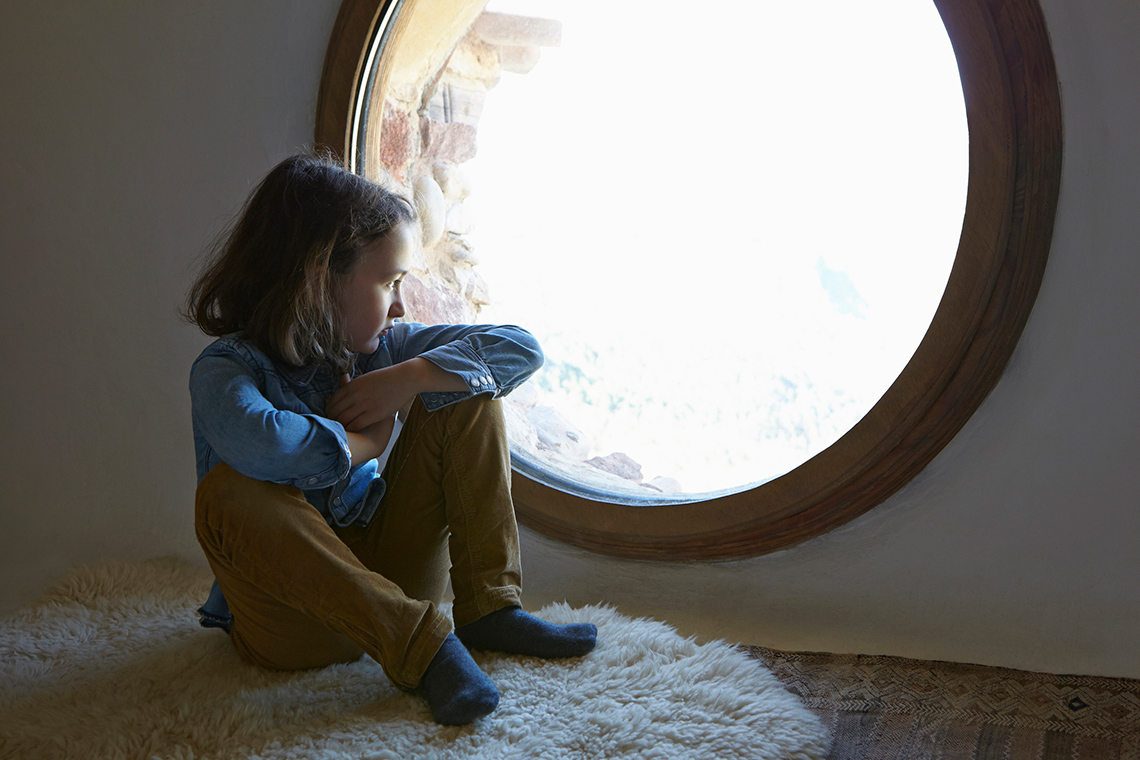
Portfolio
Review your learning
Use the following questions to reflect on your learning.
- How can different beginnings and endings change the feeling in a dance phrase?
- Why did you choose the two beginnings and endings for your dance phrases? Explain your thinking.
- What beginnings and endings would you like to explore further?
Record your responses digitally, orally, or in print. Consider adding your work to your portfolio.
Reflection
How do you feel about what you have learned in this activity? Which of the next four sentences best matches how you are feeling about your learning? Press the button that is beside this sentence.
I feel…
Now, record your ideas about your feelings using a voice recorder, speech-to-text, or writing tool.
